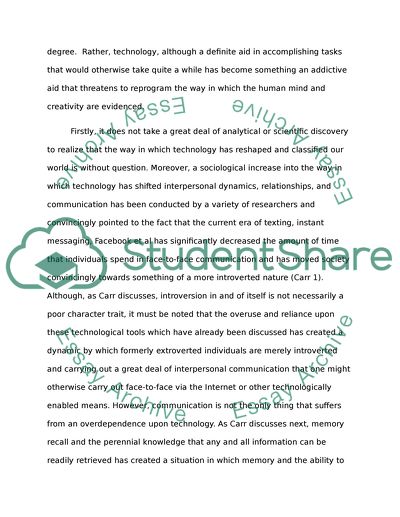Cite this document
(“Is Google Making Us Stupid Essay Example | Topics and Well Written Essays - 1500 words”, n.d.)
Retrieved from https://studentshare.org/english/1482396-critical-analysis-evaluation-essay
Retrieved from https://studentshare.org/english/1482396-critical-analysis-evaluation-essay
(Is Google Making Us Stupid Essay Example | Topics and Well Written Essays - 1500 Words)
https://studentshare.org/english/1482396-critical-analysis-evaluation-essay.
https://studentshare.org/english/1482396-critical-analysis-evaluation-essay.
“Is Google Making Us Stupid Essay Example | Topics and Well Written Essays - 1500 Words”, n.d. https://studentshare.org/english/1482396-critical-analysis-evaluation-essay.


